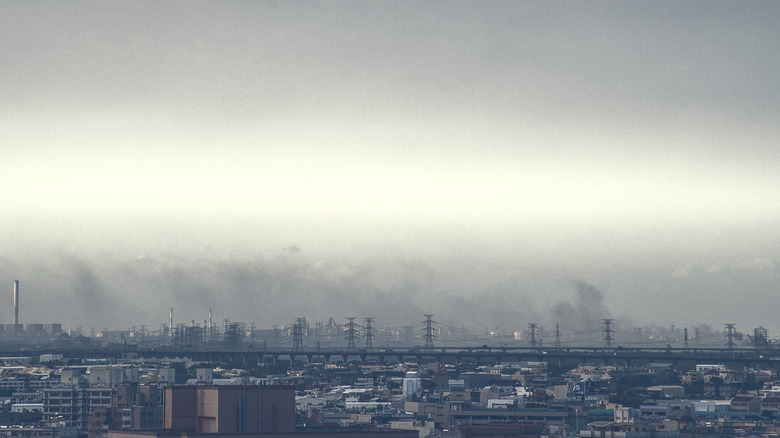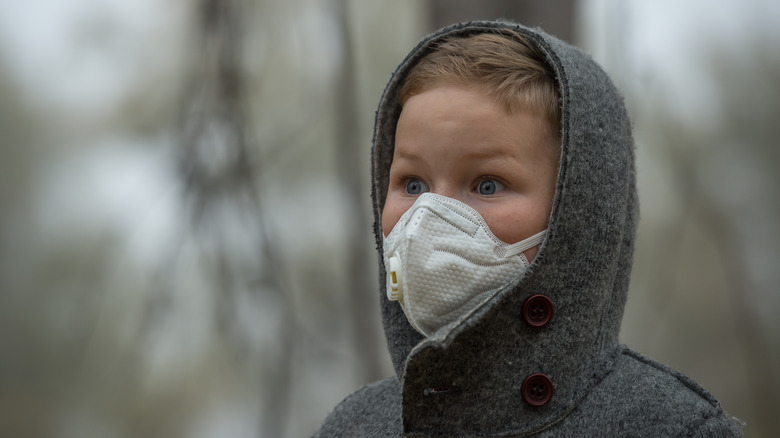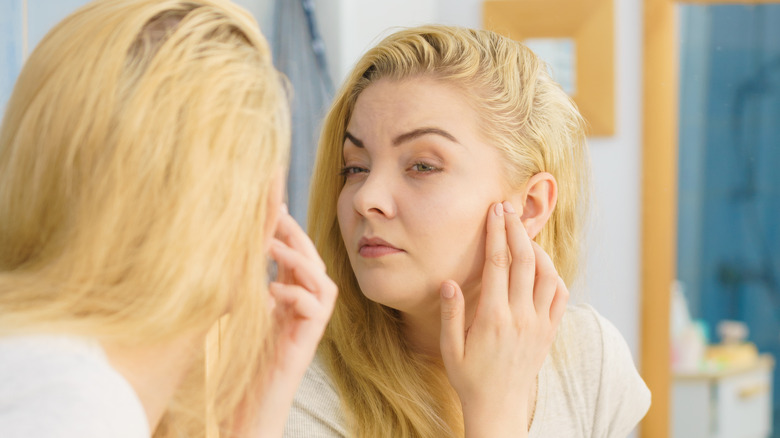How Air Quality Can Affect Your Skin
Thanks to repeated warnings about the impact of UV rays on our skin, most of us have become pretty good at using SPF products to protect ourselves from the sun. But now doctors are now sounding the alarm over air pollutants called particulate matter (or PMs), which Green Facts says is a wide range of microscopic solid and liquid particles that include dust, smoke, pollen, ash, and liquid droplets.
Researchers say that while our skin does a pretty good job of acting as a biological shield against both chemical and physical air pollutants, it is paying a heavy price for prolonged and repeated exposure to PMs. This is especially true in highly polluted cities, where residents literally face fumes day in and day out, and where this exposure can lead to dermatitis, eczema, and acne (via Research Gate). "UV [damage from the sun] was really the topic in skin protection for the last 20-30 years," says German environmental research Jean Krutmann, whose studies show a link between PM and a rise in aging (via The Guardian). "Now I think air pollution has the potential to keep us busy for the next few decades."
Doctors blame premature aging on air pollution
"With traffic pollution emerging as the single most toxic substance for skin, the dream of perfect skin is over for those living and working in traffic-polluted areas unless they take steps to protect their skin right now," British cosmetic doctor Mervyn Patterson says. "These agents have a very irritating effect and once they get into the skin, they activate multiple pathways of inflammation. Some pathways ignite the melanocytes, which create far too much pigment and end up giving you unwanted sun spots."
"Other pathways ignite messengers that make blood vessels grow, that's what results in increased redness and potentially rosacea," Patterson continues. "Also, if you damage skin, it goes into repair mode and excites enzymes which re-adsorb damaged collagen. When you have too much chronic inflammation, these enzymes remove more collagen than your skin can create. This produces skin laxity and that's where fine lines and wrinkles come in."
Pollution-proof your skin against bad air quality
Pollution-proofing your skin often means taking steps to make sure you and your skin are protected against potential (or further) damage. "People forget that the main goal of our skin is to be an immune barrier," dermatologist Anne Chapas tells The New York Times. "So the main goal is to keep things out of the body. If you have a compromised skin barrier, it's letting things in." Given this, doctors like Chapas say it's important to have a skincare routine that includes antioxidant and cleansing, as well as barrier repair. They also advise you to keep an eye out for products with ingredients that include glycerin, lanolin, niacinamide, and beeswax, all of which can have a positive impact.


